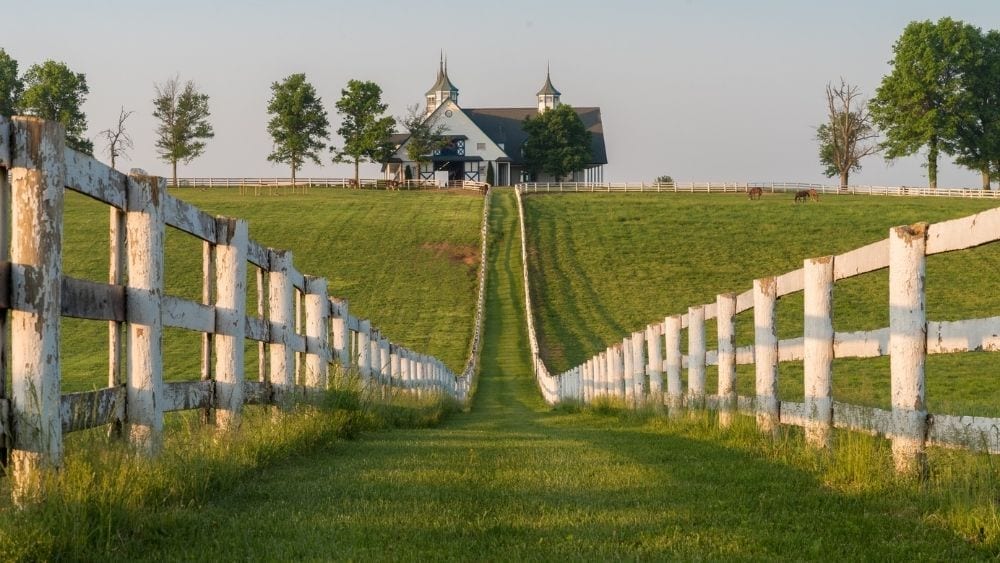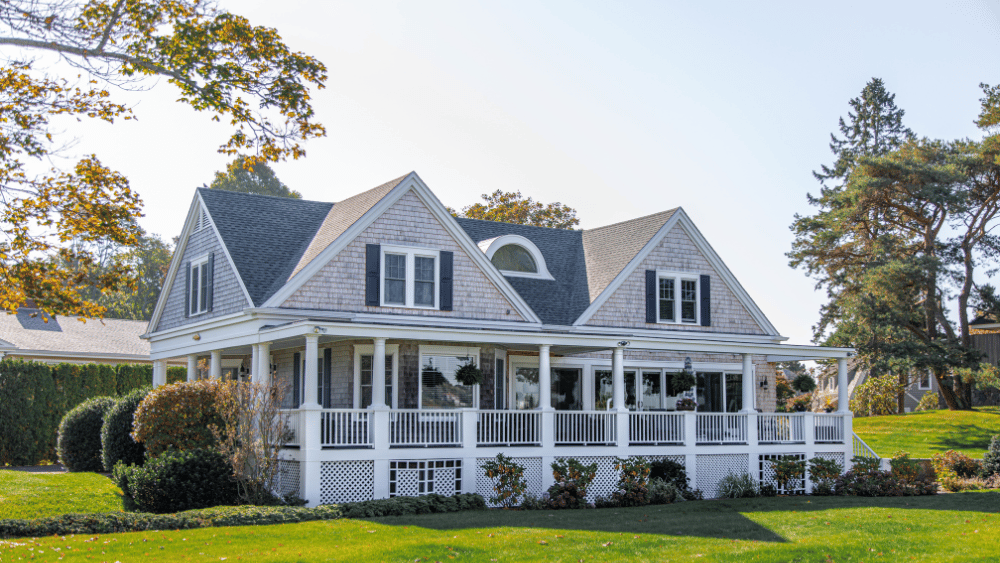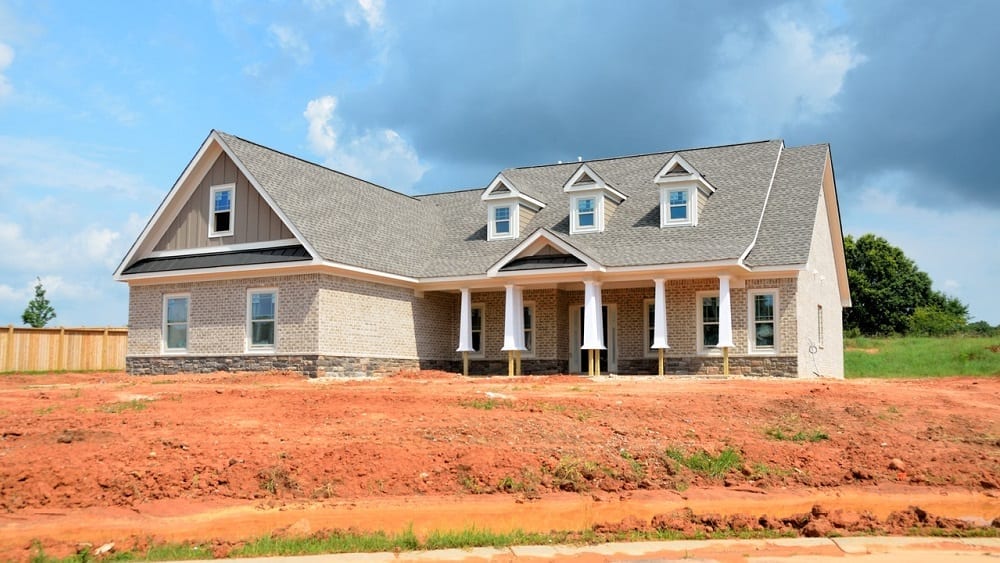
If you’re planning to build a house in Kentucky, you’ve chosen a state that’s among the least expensive in the country for construction costs. The average cost to build a house in Kentucky is estimated at $168,134, according to GoBankingRates. Kentucky ranks as the 13th least expensive state to build a house, with an estimated hourly labor cost of $15.97.
Of course, the cost to build a house in Kentucky depends on several factors, particularly the affordability of the city where the home is being built. For example, building a house in Louisville, Lexington, or Bowling Green, the three largest cities in the commonwealth, typically costs more than building a house in a rural area because land and labor are more expensive in urban locations. Approximately half of the counties in Kentucky are rural.
The price you’ll pay to build a house in Kentucky also depends on the size and style of the house and the materials you choose.
Custom vs. Production Homes
The first choice you’ll need to make when you decide to build a home in Kentucky is whether you want a custom home or a production home. A production home is built within a planned community or a cluster of homes on land the builder or developer owns. Generally, production homes are less costly than custom homes.
If you plan to build a custom home, you need to find and finance the lot, make sure it has the infrastructure you need, obtain permits and work with an architect or a design/build firm as well as a construction company. All that typically costs more than a production home.
This article discusses how to build a production home in Kentucky.

Step-by-Step Process to Build a House in Kentucky
The process to build a house in Kentucky usually takes about seven months and includes the following steps:
1. Budget for Your New Home
Your first move when you decide to build a home in Kentucky should be to develop a budget. How much you can spend will influence every decision you make.
Calculate Your Monthly Payment
Start by deciding how much you feel comfortable spending on your mortgage payment each month. Keep in mind, this monthly payment isn’t just your mortgage principal and interest.
This monthly payment will also includes property taxes and homeowner’s insurance, and if you make a down payment of less than 20 percent, you may need to pay mortgage insurance. In most cases, you’ll also need to factor in homeowner association dues. Ideally, your monthly housing payment should be 28 percent or less of your gross monthly income.
Find a Lender & Take Out Loan
The amount you borrow depends on the price of the home and your down payment. Go over your assets to see how much you want to spend on your down payment and don’t forget to budget for closing costs, moving expenses, and cash reserves. If you have a house to sell, estimate your proceeds from the sale to see how much that may add to your potential down payment.
You should interview a couple of lenders and choose one who will document your finances and review your credit. Request a mortgage preapproval so you’ll know your price range.
Check Out Homebuyer Assistance Programs
Another step in the process of building a home in Kentucky is to check out homebuyer programs. Ask your lender if there are any special loan offers or homebuyer assistance programs that you qualify for that can help you pay for your Kentucky home.
The price per square foot to build a house in Kentucky averages $80 to $220, which would be $200,000 to $550,000 for a 2,500-square-foot house. Typically, the materials to build a house in Kentucky represent about 50 percent of the total cost, and labor costs represent about 30 percent to 60 percent.
When you choose a builder, you may be able to reduce the total cost with specific choices of materials or products. Your builder may also be able to save money by buying some items in bulk.
Be Aware of Other Costs
To calculate your monthly expenses, you can get an idea of the property taxes and homeowner’s insurance. Homeowner’s insurance in Kentucky is higher than the national average, while property taxes are lower in Kentucky than in many other states.
Homeowner’s insurance for a $300,000 home in Kentucky costs an average of $2,862 per year, according to Insurance.com, which is 24 percent above the national average of $2,305. The average property tax rate is 0.83 percent in Kentucky, compared to the 1.07 percent national average. The typical annual property tax bill is $1,257, which is about half the national median bill, according to SmartAsset.com.
Homeowner association dues are harder to estimate before you know where you will build your Kentucky home. Dues depend on the amenities and services that are included as well as the size of the community. When you visit communities, you can ask about anticipated homeowner association dues.

2. Choose Your Builder and Community
The next phase of the step-by-step process to build a house in Kentucky is much more fun and requires less math. You can start searching for a community online by location and price range. Check out the neighborhood and planned amenities online, then review the active builders in that community and their websites.
Each builder’s website is likely to have floor plans, virtual tours, renderings, 3D models, and photos so you can get an idea of whether their homes meet your wish list. You can find reviews of builders at TrustBuilder.
Once you have a smaller list of potential builders and communities, you can visit model homes and talk with sales professionals in person about plans for the community, options, and the building timeline. If there are residents around, you may want to ask them about their homes and the neighborhood to gather more information before you make a final choice.
3. Line Up Your Financing
As soon as you’ve chosen the builder and the community, it will be time to sign a contract. The builder will usually tell you if it has a minimum deposit requirement that you’ll need to make when you sign your contract.
Most builders have either an in-house mortgage lender or a list of preferred lenders that they trust to close the transaction. You don’t have to finance your home with that lender. In fact, you may want to shop around to compare loan terms and fees. But there are advantages to working with your builder’s lender and preferred title company.
First, they are familiar with the process and can streamline the financing and closing. Second, your builder may offer an incentive such as an upgrade to your home or assistance with closing costs to encourage you to choose that lender and title company.
Be prepared to make the rest of your down payment at the closing and to pay closing costs of 2 percent to 5 percent of the sales price. Your lender can estimate your closing costs in advance. In some cases, you’ll need to pay for special optional features before the closing.
4. Choose Your Lot, Floor Plan, and Upgrades
When you sign the contract to build a home in Kentucky, you’ll need to make several choices including the lot and floor plan. Not all floor plans can be built on every lot, so you’ll want to discuss this with the on-site sales professional. You may need to pay extra for some lots, too.
Make sure you know about building plans around the lot before you choose one. You don’t want to choose a lot for the view or the trees behind it and find out a year later that more houses or a school will replace them.
This is also the time to confirm which features are included and which are upgrades. Most likely, you’ll need to make any available choices, especially for structural changes, as soon as you sign the contract. The sales pros on-site, and sometimes an interior designer, are available to help you through this process.
5. Be Aware of Permitting and Inspections
Every builder in Kentucky must comply with the mandatory statewide building code. In addition, your builder will need to obtain building permits and have multiple inspections while your home is under construction. If you want to hire an outside home inspector, you are allowed to do this. Your builder will tell you when it’s an appropriate time to have your own inspection.
6. Consider the Local Climate
Extreme heat, flooding, and tornadoes are common in Kentucky depending on your location. The choices you make for your home may help it be more resilient to some of these issues. Your builder can help you with your concerns and give you advice.

The Construction Phase
Every house is different, but typically it takes about seven months to build a house in Kentucky. However, if there are shortages of materials or labor in the area, that could increase the time it takes to build your new home in Kentucky.
Even things like permit and inspection delays can affect your timeline, along with the weather. Your builder can keep you informed of the progress of your home. You should also stay in contact with your lender so you can be certain your financing is ready when your new Kentucky home is complete.

Michele Lerner is an award-winning freelance writer, editor and author who has been writing about real estate, personal finance and business topics for more than two decades.
 TikTok Made Me Buy It: 22 Custom Kitchen Ideas
TikTok Made Me Buy It: 22 Custom Kitchen Ideas
Carmela Frigand
Would like to purchase a home or condo in NC prefer Bristol City